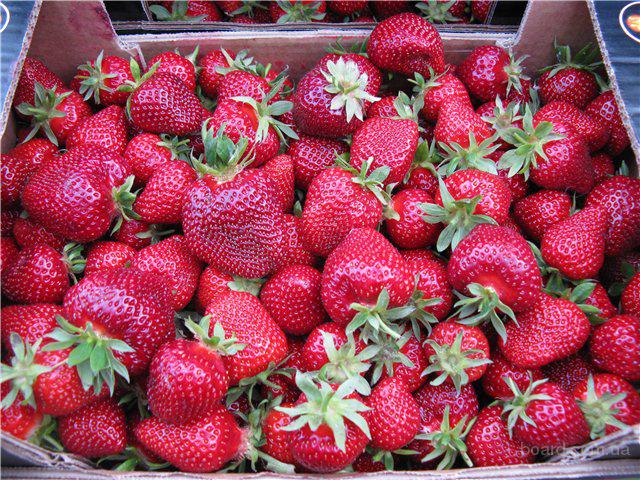Strawberry Kama: variety description and cultivation
Content
Description of the variety
Kama is an early variety with a characteristic strawberry aroma. The berries of this strawberry weigh about twenty grams. They are bright red, slightly ribbed, of a classic shape. The fruits of the plant are sweet and juicy. As they mature, their aroma and taste become more pronounced. The first harvest is considered the largest. Subsequent ones give already smaller berries. This variety is characterized by a long flowering period. But it has a high yield. From one bush of strawberries, you can harvest up to a kilogram of the crop or as much as 12 tons per hectare.
If you decide to grow this plant in a greenhouse, then the beginning of fruiting can be expected in mid-spring. This variety is one of the earliest. The harvest begins at the end of May. The fruiting period lasts about a month.
The Kama bushes are of medium height, in some cases even tall. They can be called compact. They have small, dark green leaves, with their downward sloping characters. Peduncles are located under the leaves, which eventually turn into berries.
This strawberry has sufficient resistance to a variety of diseases. However, it is very sensitive to the strawberry mite. When growing this crop, it is worth protecting it from spotting. Another feature of this variety is its unpretentiousness and resistance to gray rot.
In order to appreciate the taste and aroma of this strawberry, it is necessary to wait for its full ripeness and dark red color, because Kama is characterized by a false-seeming maturity and a sour taste when not fully ripe.
When fully ripe, Kama acquires a dark burgundy hue, from which this berry received its popular name - Black Prince. The Kama variety gives a small amount of whiskers, but they are quite powerful. Ripe berries sometimes have a slight void.
When describing the taste of this berry, one cannot fail to mention its pronounced strawberry-strawberry aroma. The pulp is quite dense and juicy. The seeds are yellow and not too deep. The berry weight ranges from 25g to 50g and depends on the agricultural technology used for cultivation.
Video "Strawberries for Dummies"
How to care
There are no special requirements for caring for this berry. She is very picky. It is only necessary to regularly remove weeds from the strawberry plantation, as well as mulch the soil. Kama loves regular watering, do not let it dry out. This plant is called drought-resistant, however, with insufficient moisture, the yield can be significantly reduced, so it is better to avoid such situations.
After breeding, this variety does not sour at all, therefore it is considered suitable for both industrial cultivation and amateur cultivation. Like many varieties, this strawberry prefers nutritious soil, light conditions and plenty of sunlight.
Reproduction
Kama reproduces by antennae. They must be taken from the mother bushes of the first year of life. This is how the plant takes root best.If seeds are used to propagate this variety, this leads to the loss of many varietal qualities. Planting of this takes place according to the scheme 40-50 x 60-80 cm between the bushes, the distance should be at least 30 cm, it is better not to thicken it if possible. The plant is favorably influenced by drip irrigation, but it is rather picky and resistant to drought. With frequent watering in the heat, Kama does not fade and feels tolerable.
In the fall, after planting seedlings, it is advised to use complex chelated fertilizers. It is not recommended to use nitrogen fertilizers, and even more so manure, as they can provoke a breeding ground for fungal. After 3-4 years, change the planting material, as any strawberry variety loses its qualities over time. The two-year cycle is considered the most optimal for farm planting and is widely practiced in agribusiness.
The most suitable soils for the Kama are moderately moist neutral loamy soils. Plant seeds should be bought only in specialized stores and in proven places.
Advantages and disadvantages
The Kama variety is considered one of the most worthy among farmers. If you pay attention to their feedback, it seems that its only drawback is its vulnerability to leaf spot. But it should be noted that this is fully compensated for by its good consumer qualities, excellent taste and undemanding conditions.
In addition, this problem can be easily solved with modern fungicides. The instability to morning frost can also be attributed to the disadvantages of the variety. In case of frost, it is recommended to cover the plants with agrofibre, film, spunbond or any other thin material. Perfect for hobby and commercial cultivation, this variety is versatile and freeze-resistant.
Video "Varieties and varieties of strawberries"
What are the varieties of these berries? To learn more on this topic, we recommend watching the following video.



